Abstract
The initial transient response of a Gibbs type thermoelectric probe embedded in human resting leg muscle was used for absolute quantitative measurement of local blood flow per unit tissue volume (local perfusion). The probe consisted of two thermistor-containing needles, one of which was heated by a constant electrical power input. The temperatures of both thermistors were recorded continuously on a two-channel, fast-response recorder. Upon sudden occlusion of the blood flow to the leg, each temperature vs. time record exhibited a change of slope. The change in slope of the temperature difference, divided by the temperature difference, (degrees/minute degree) was identified with the local perfusion (milliliters/minute milliliter) existing just before occlusion. The local perfusions determined agreed in range and mean with literature values of average perfusion by venous occlusion plethysmography. The nature of the local blood flow measured by the present method is discussed relative to that by other methods.
Full text
PDF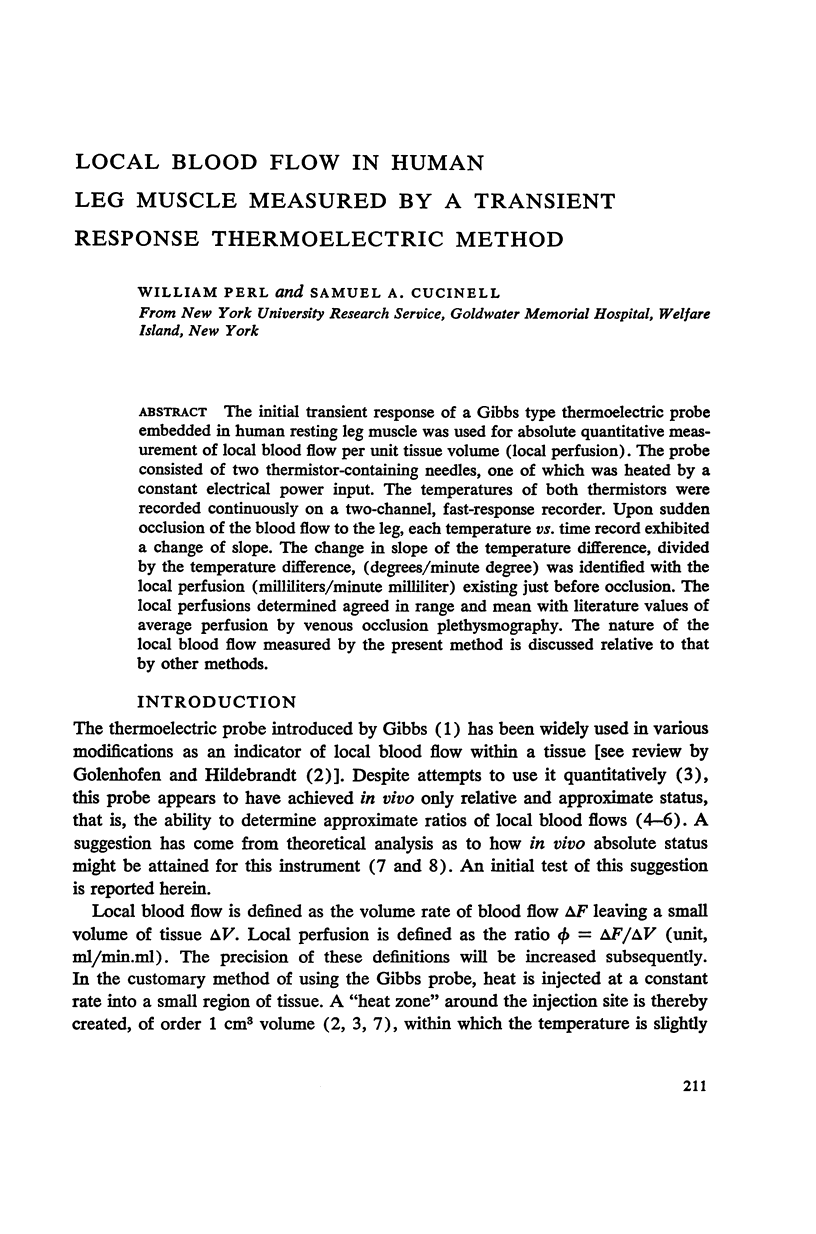
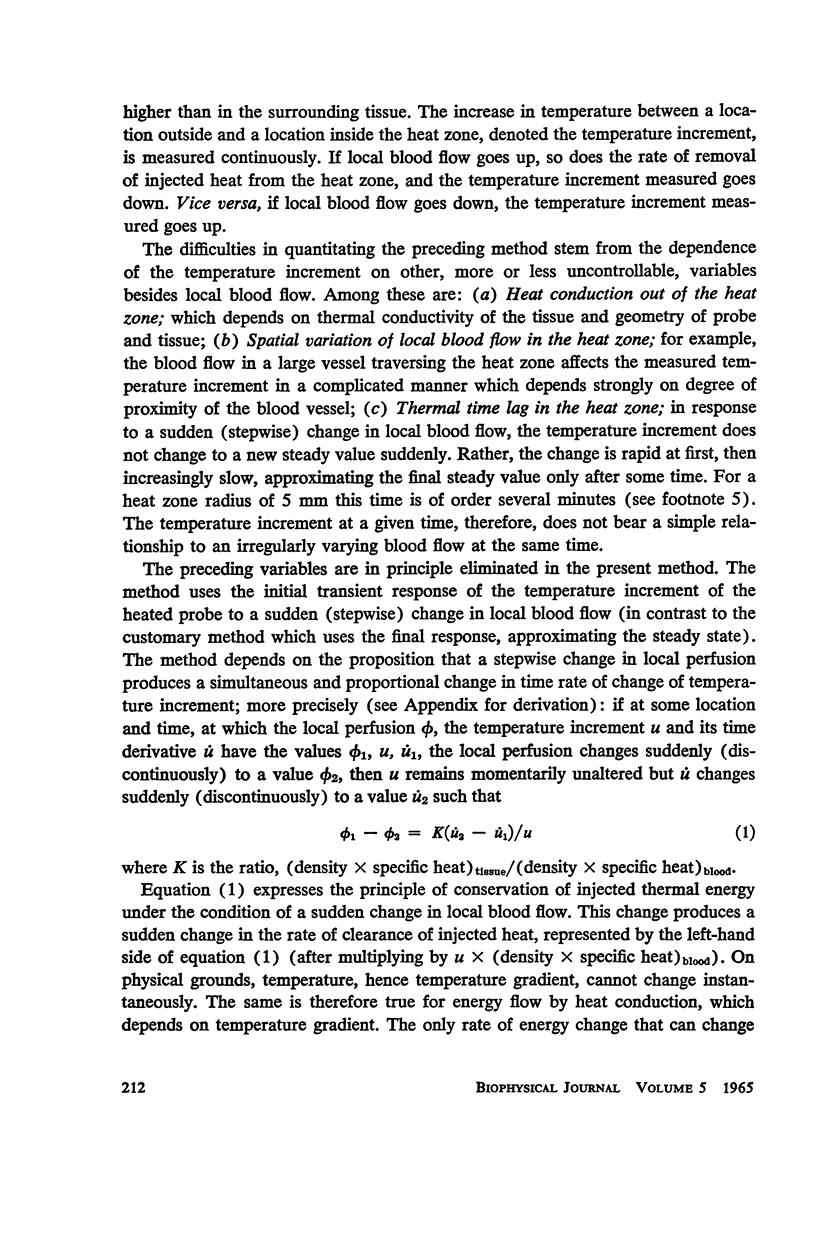
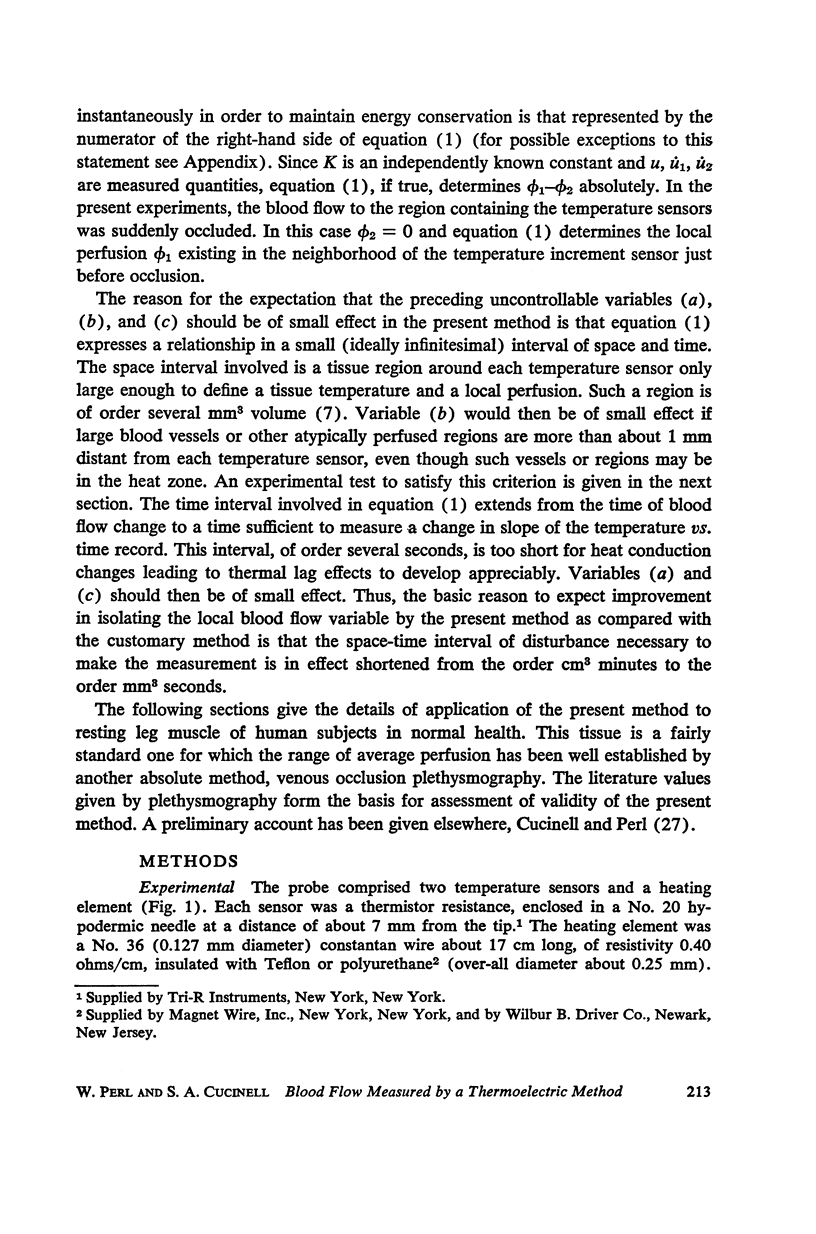
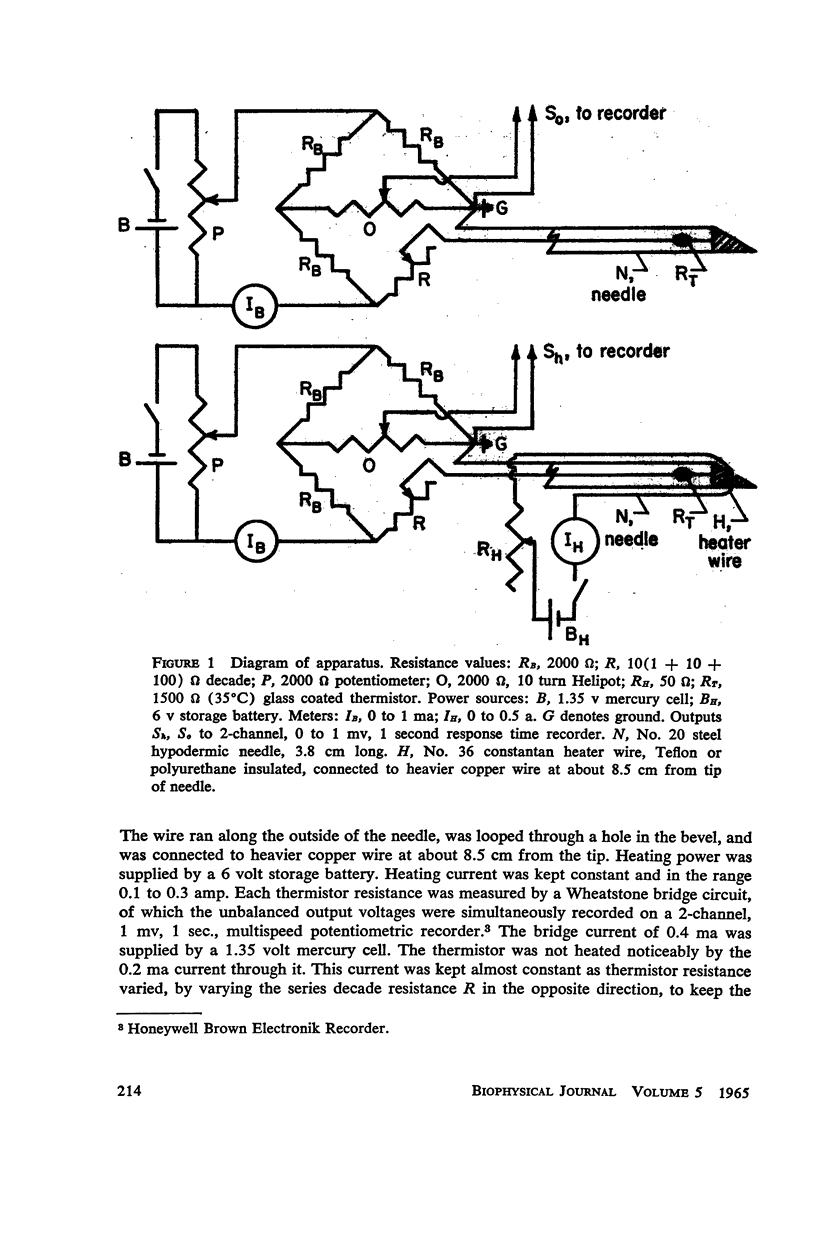
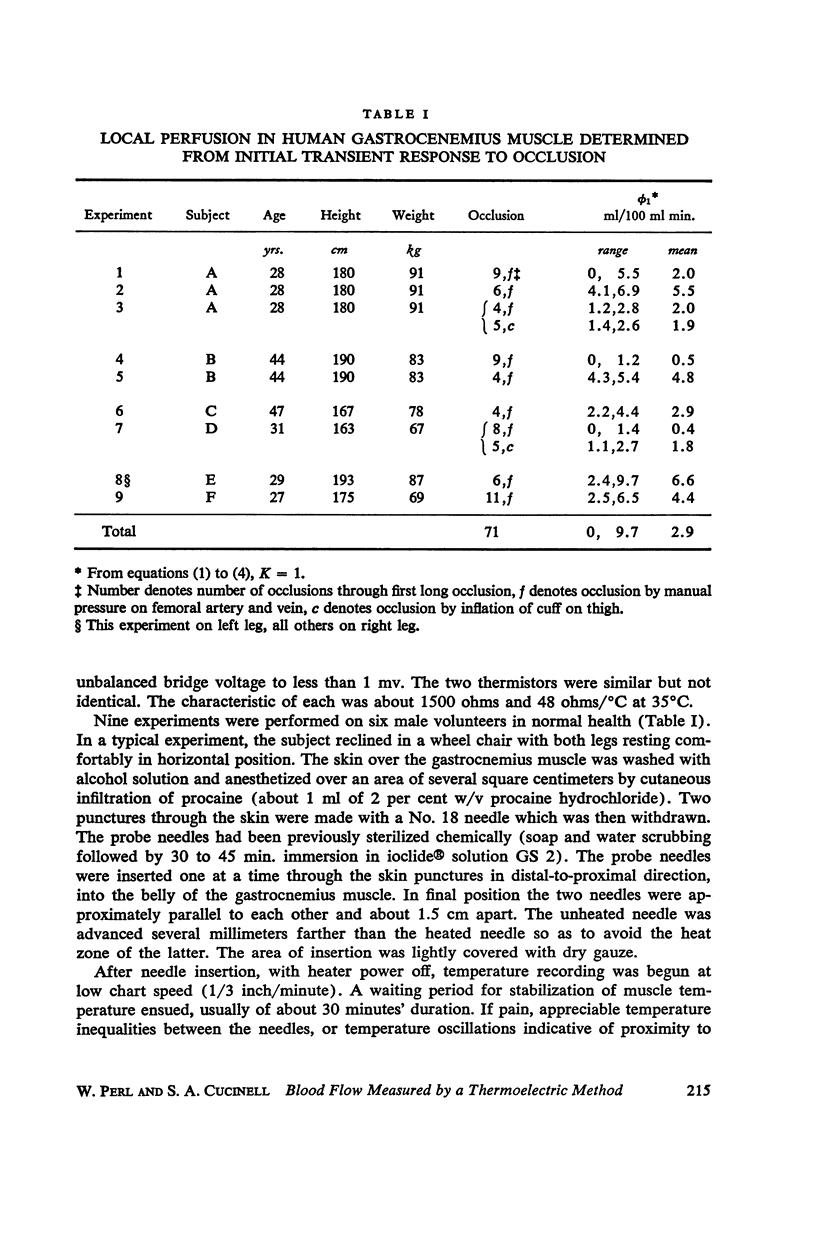
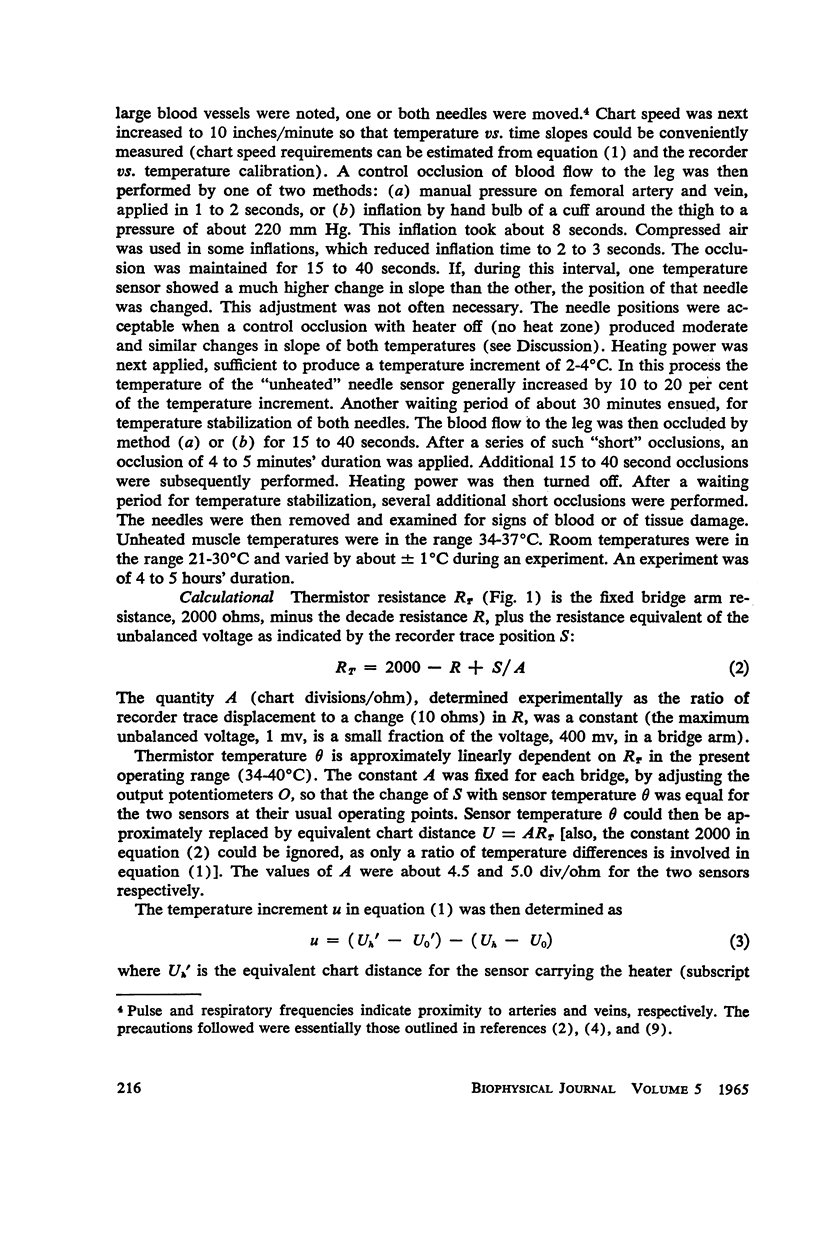
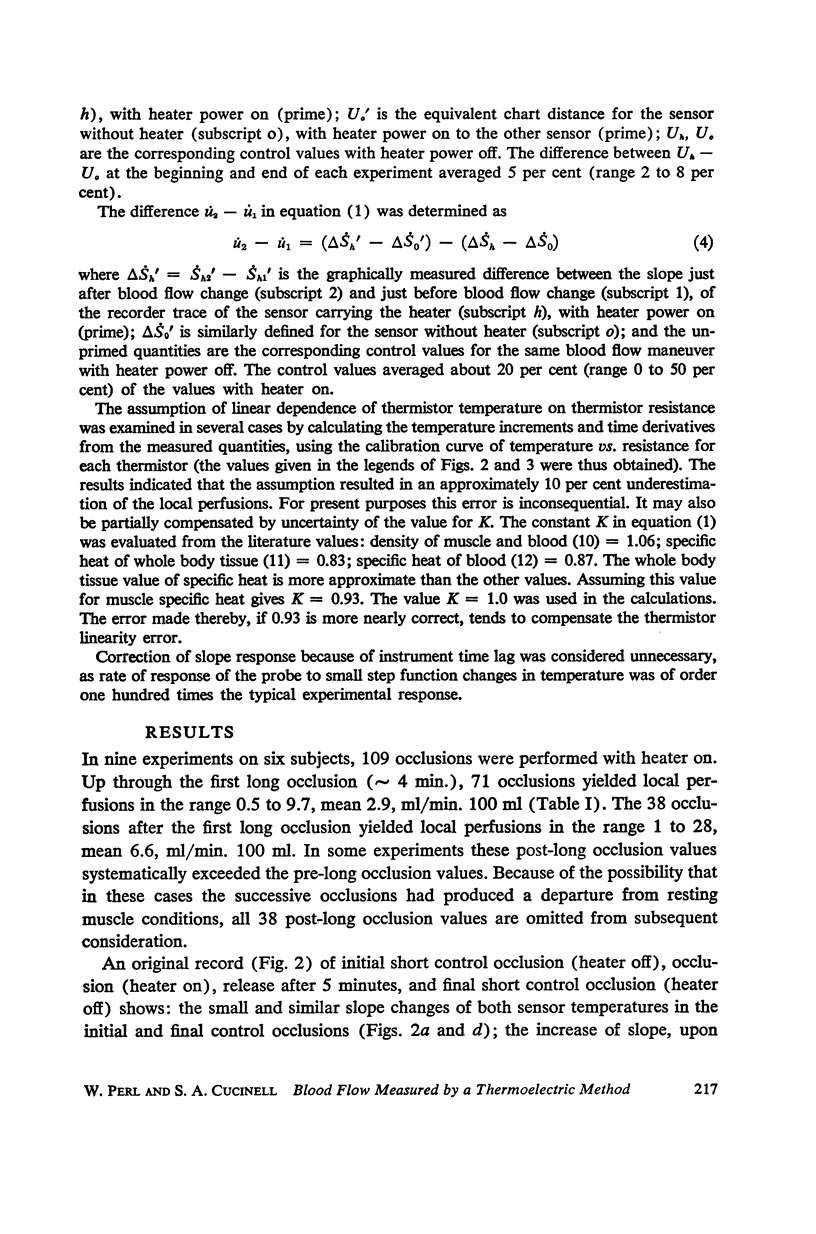
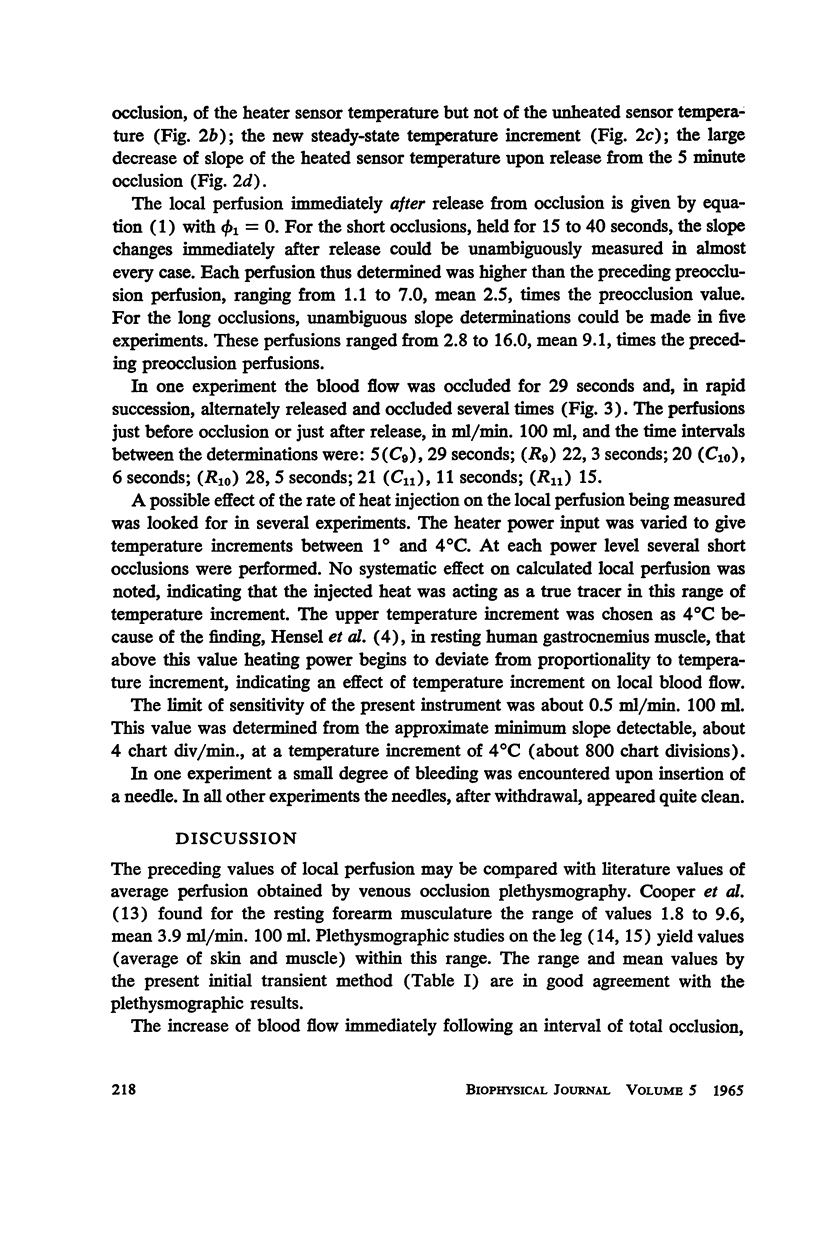
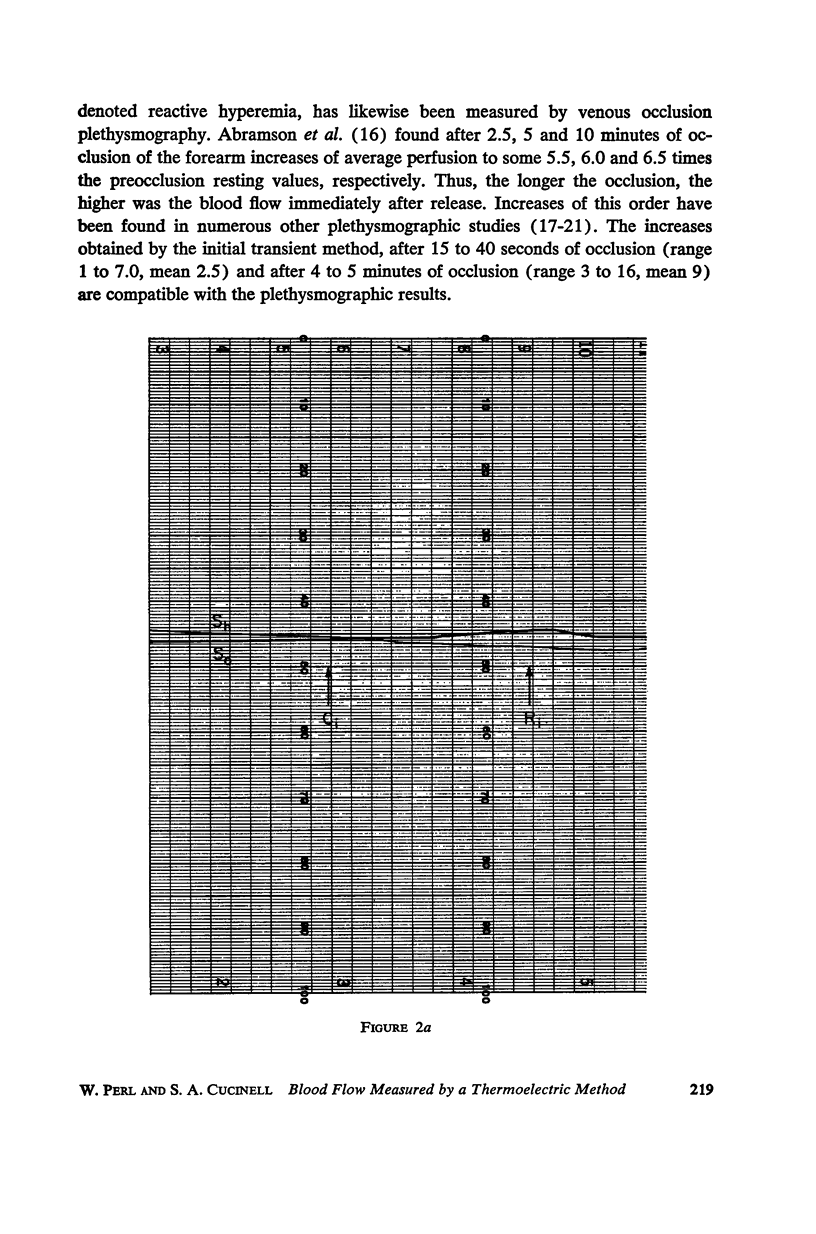
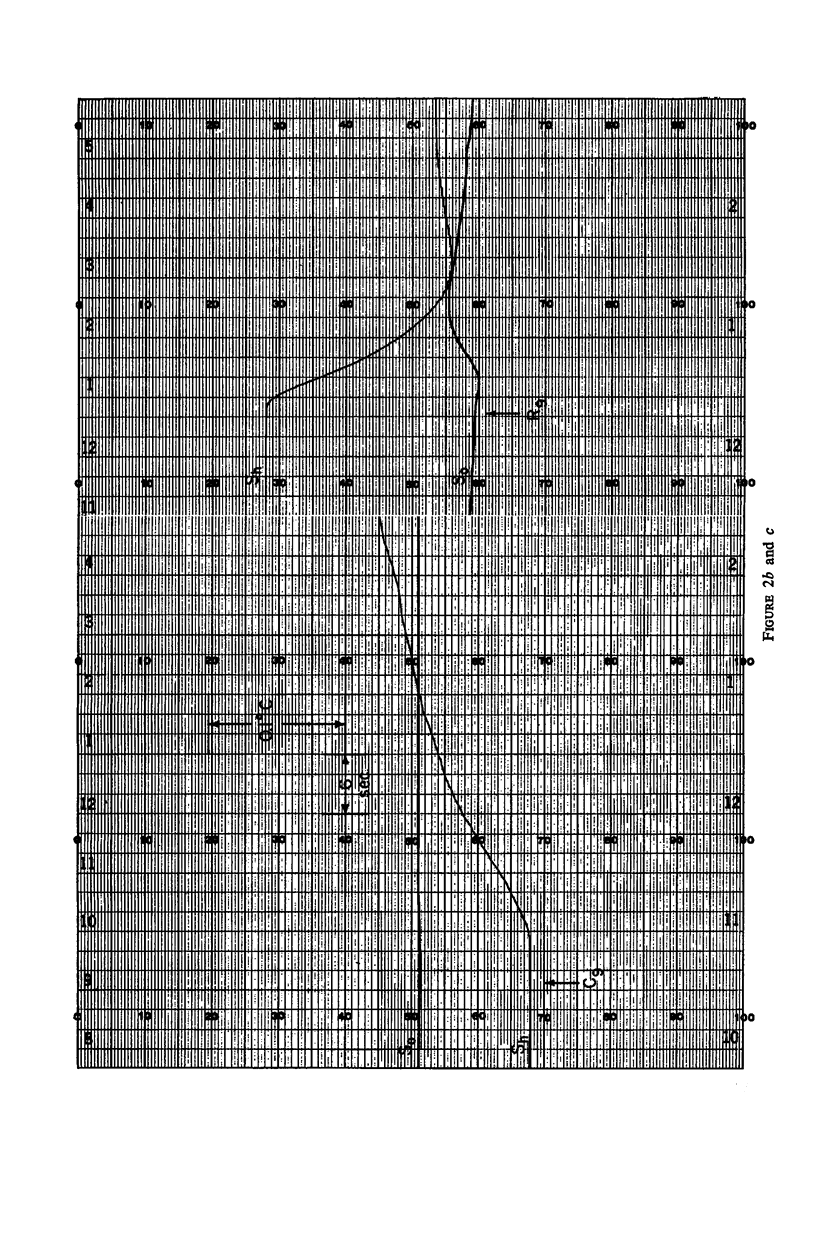
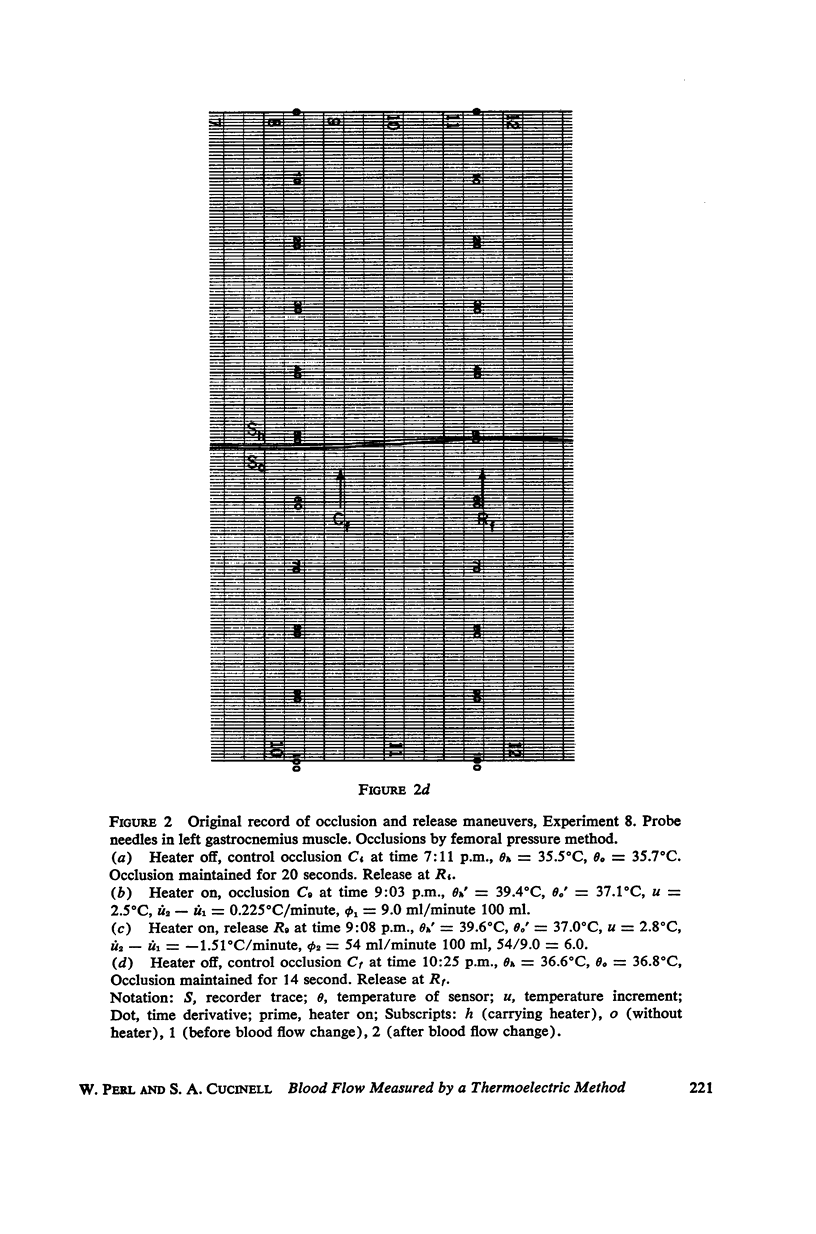
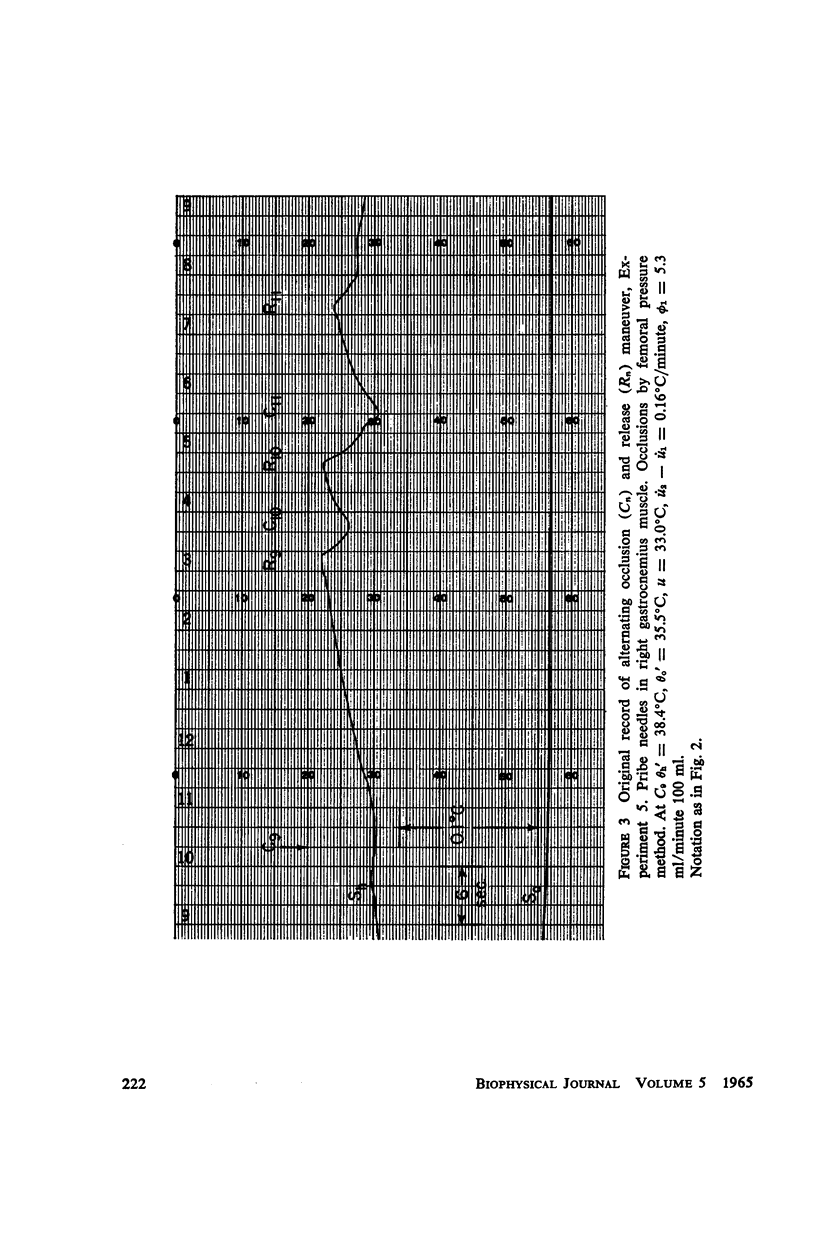
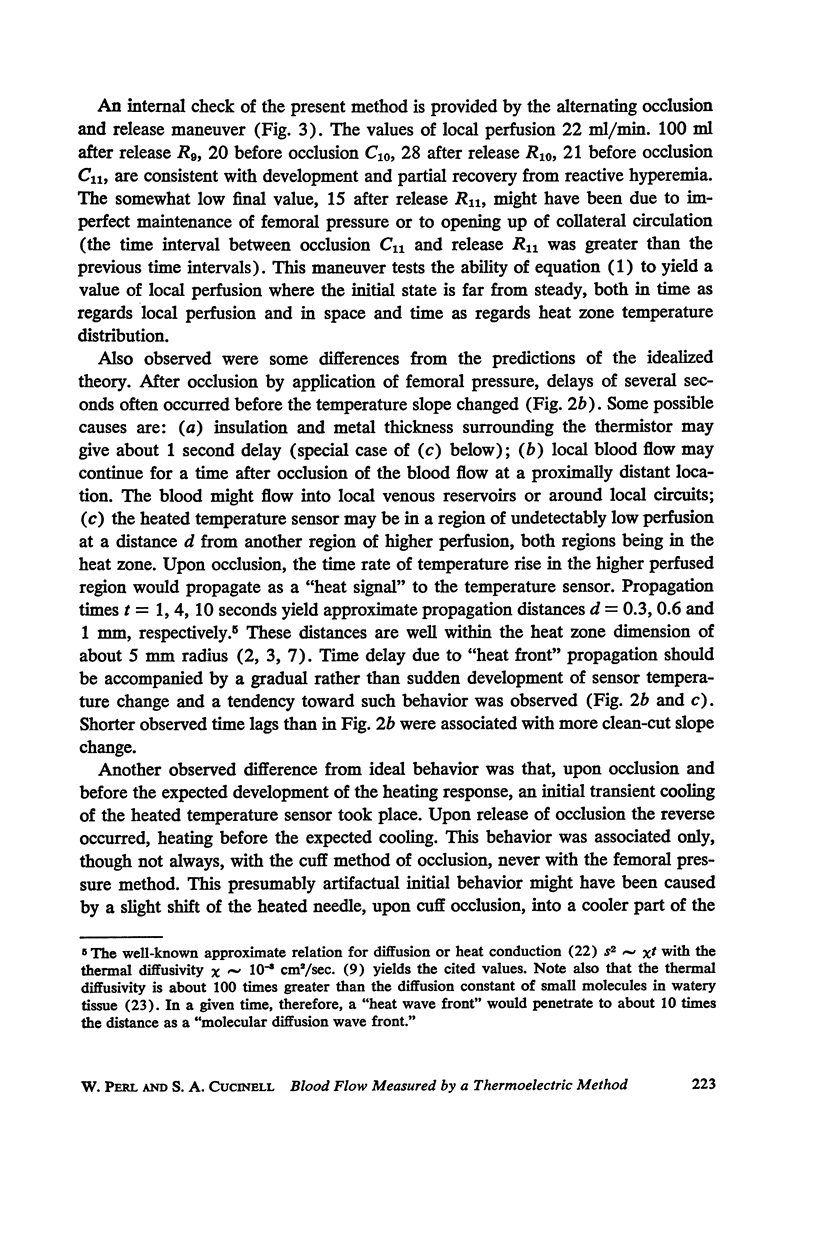
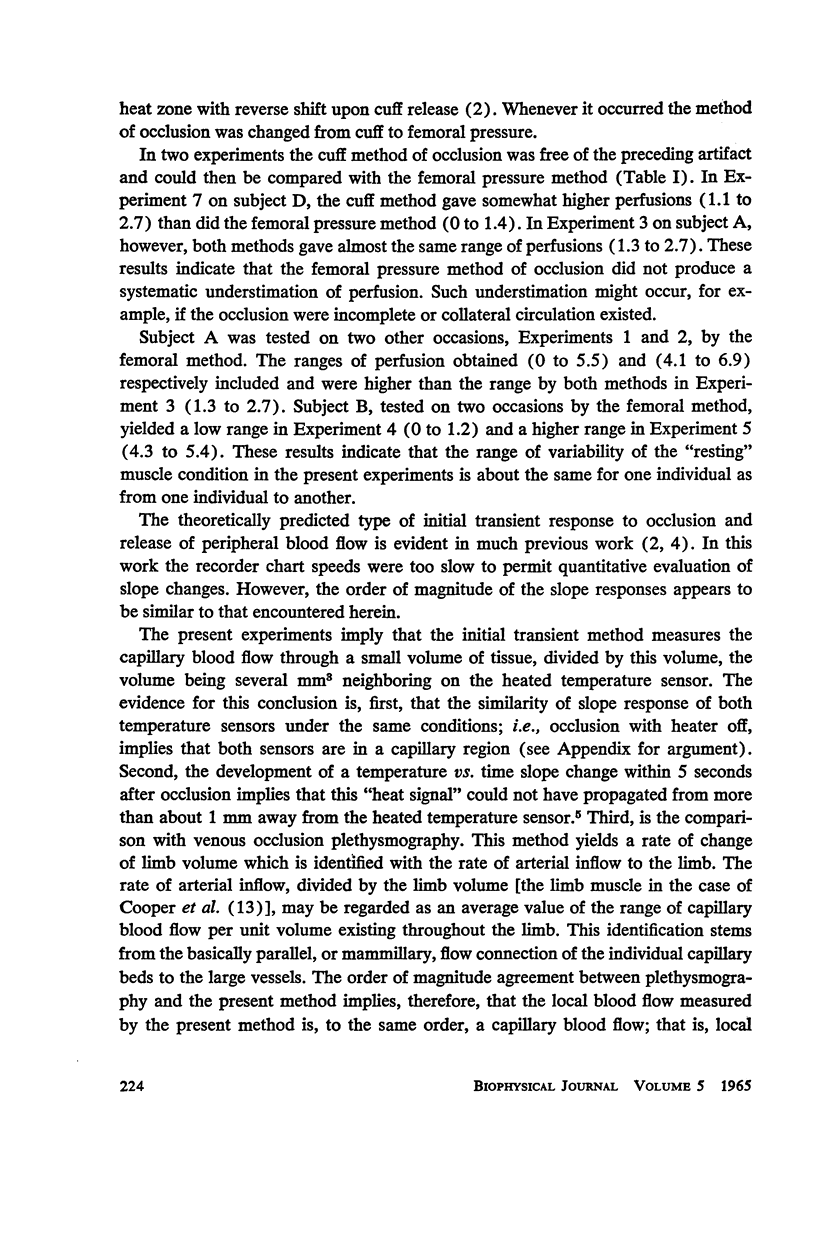
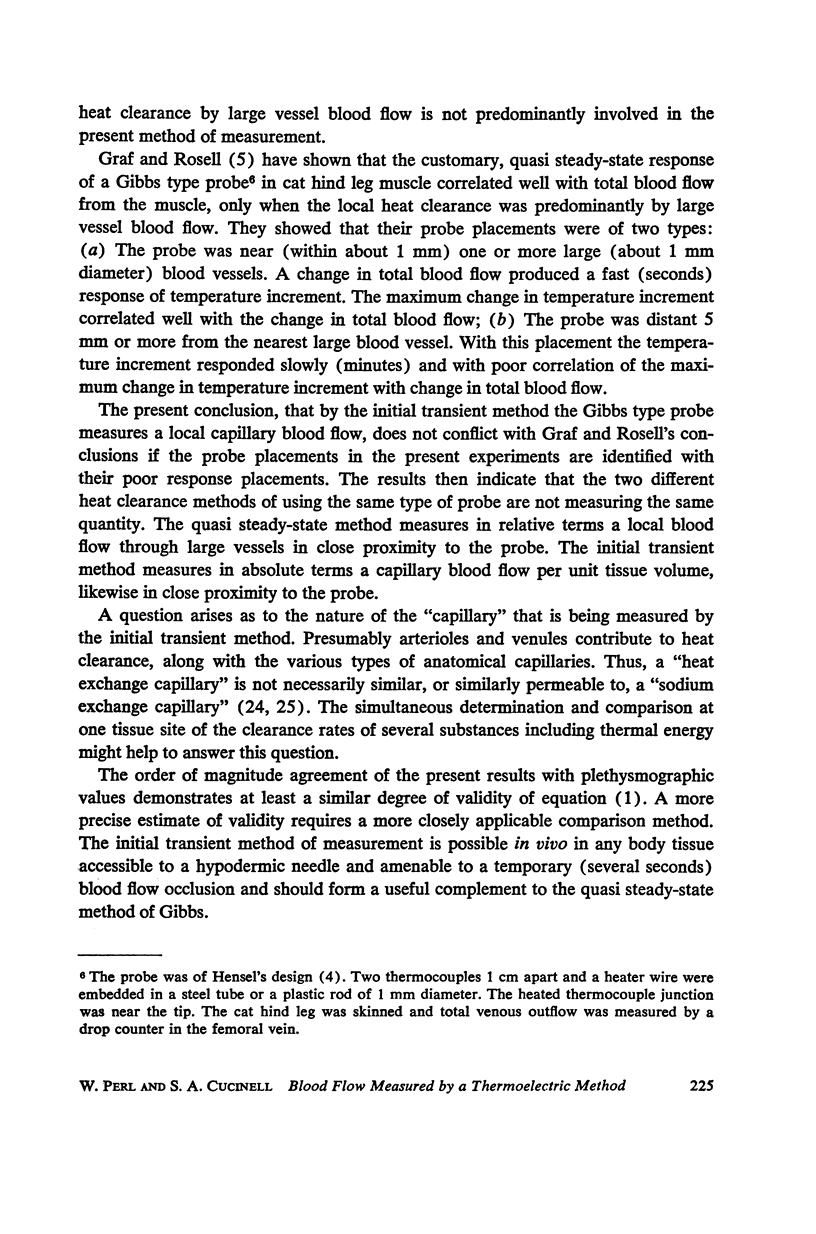
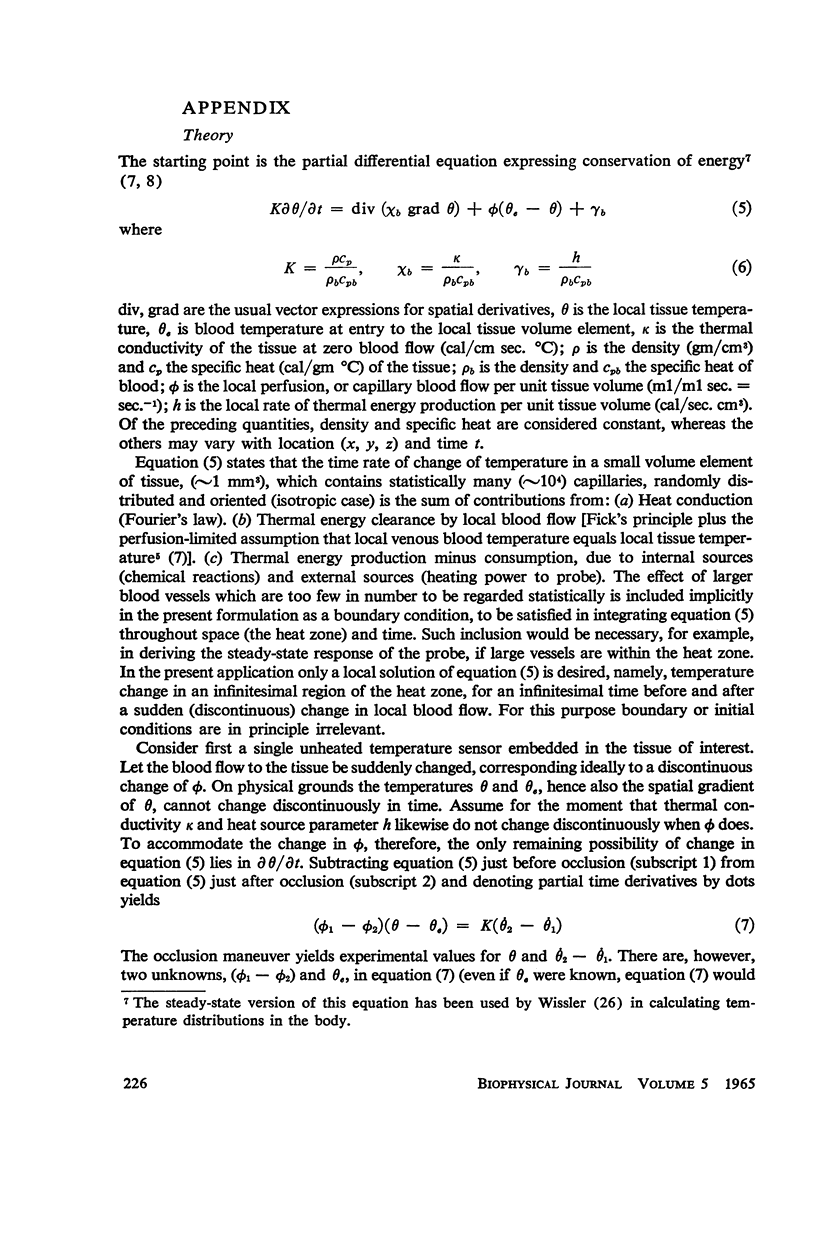
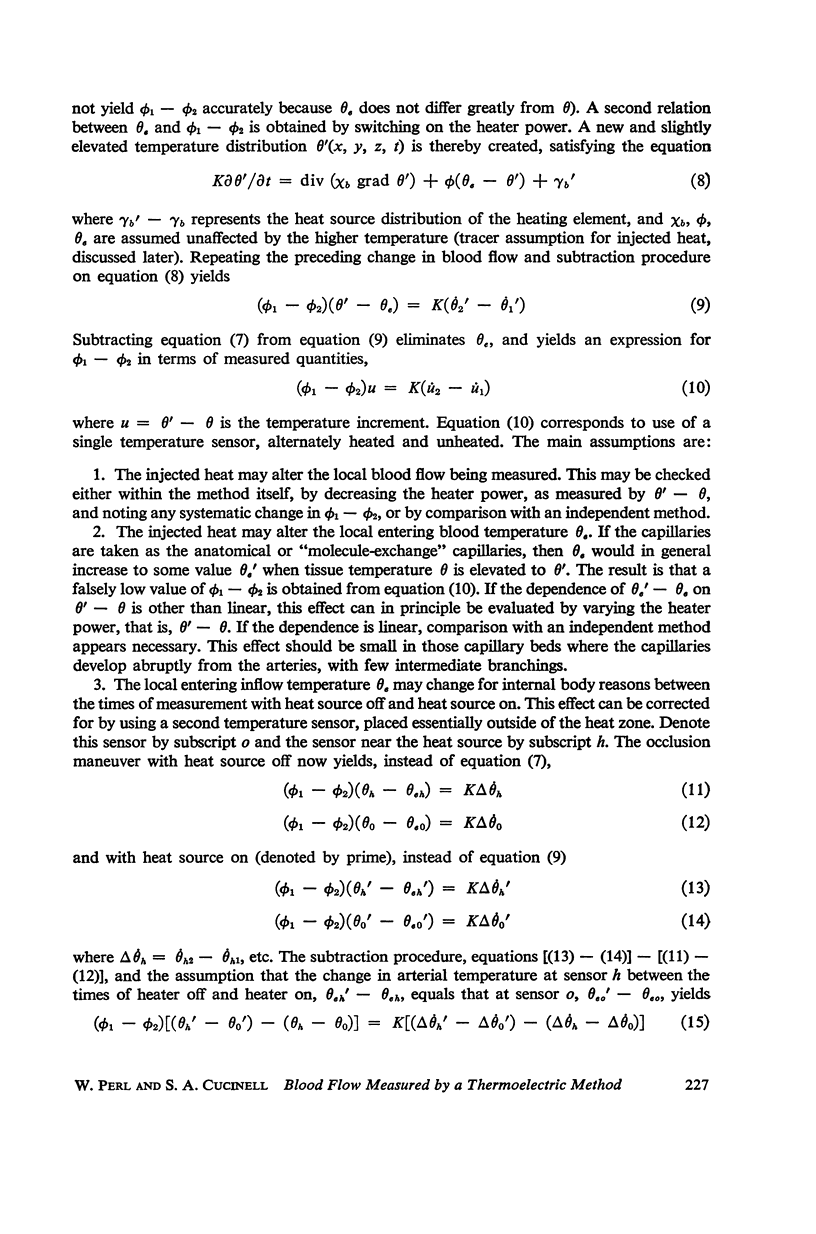
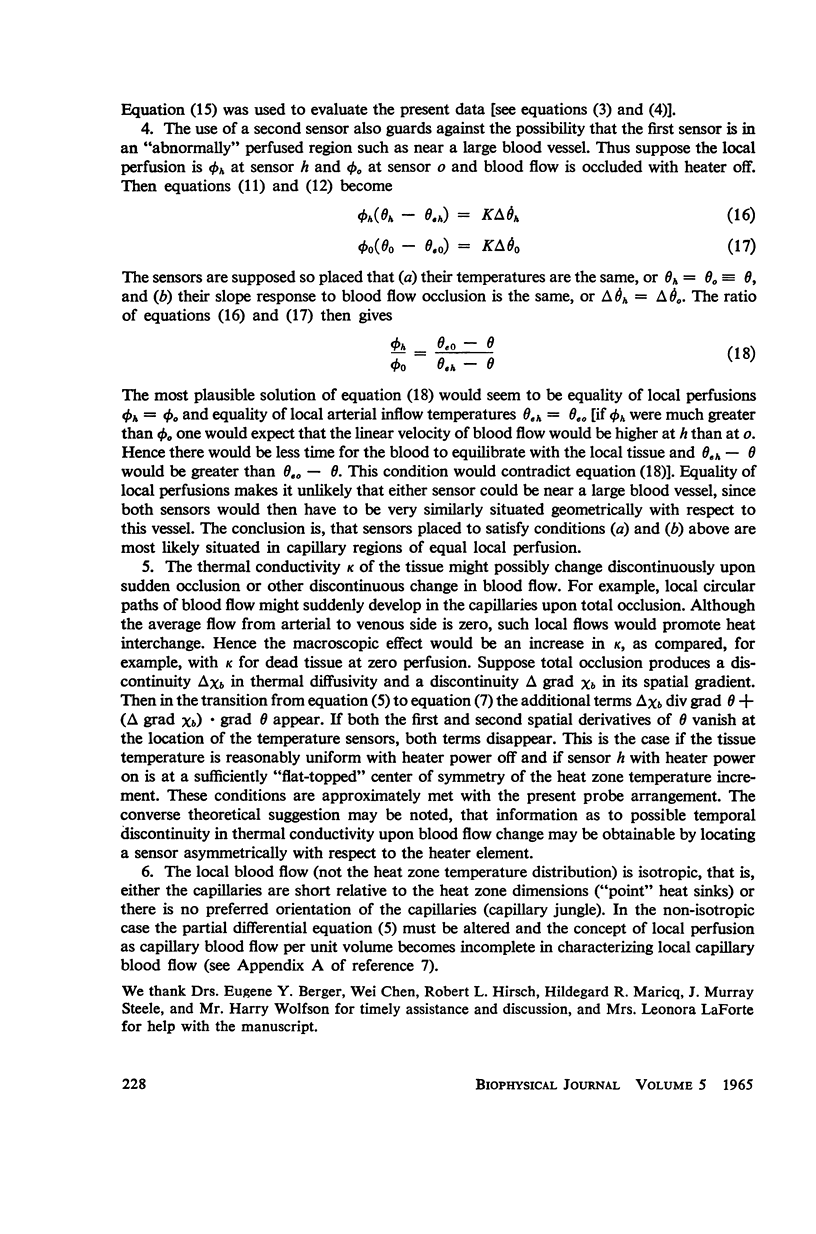
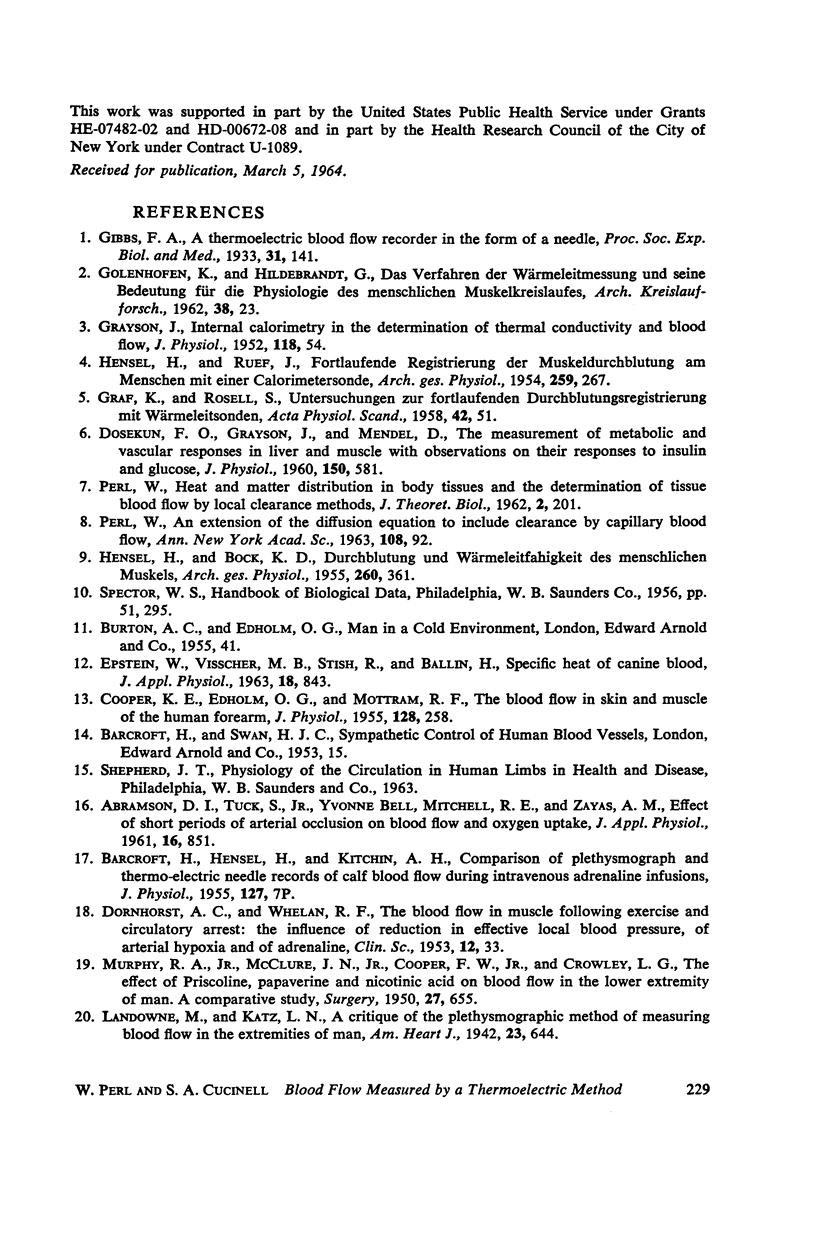
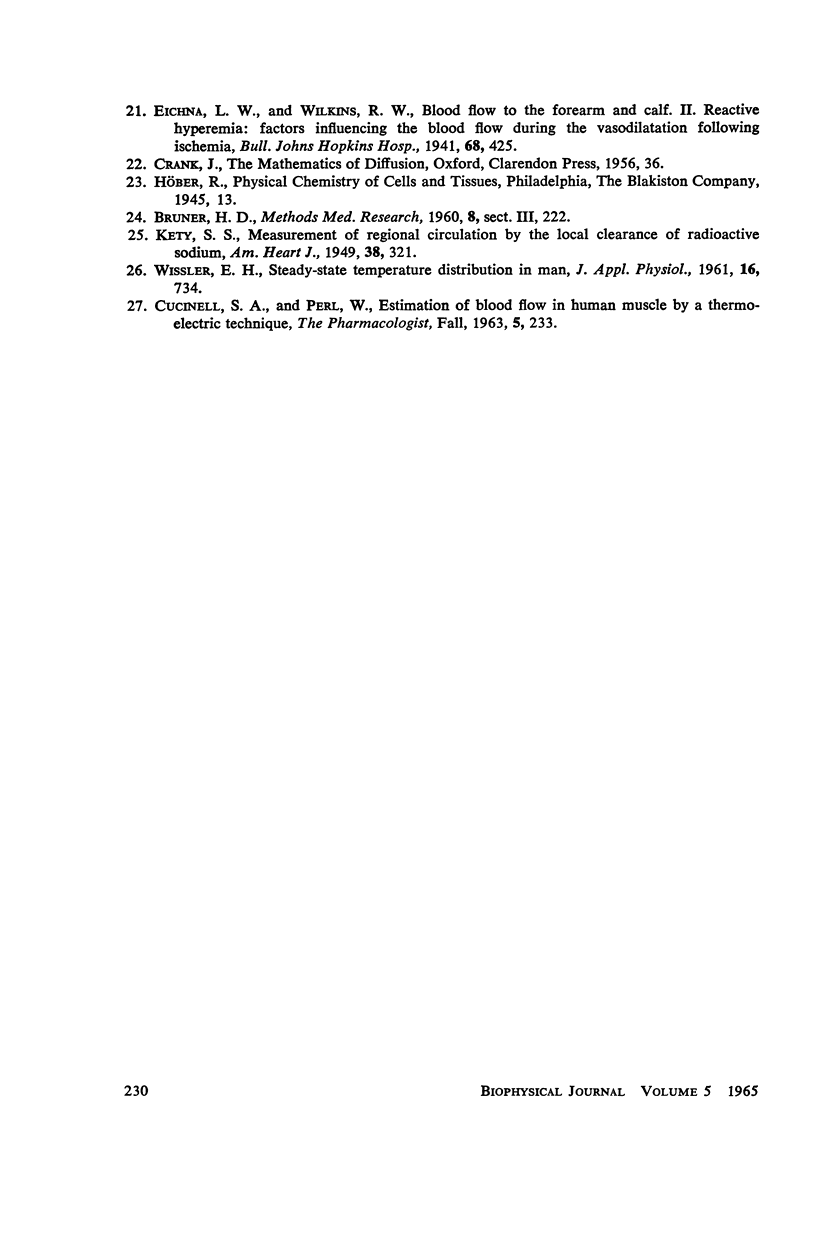
Selected References
These references are in PubMed. This may not be the complete list of references from this article.
- ABRAMSON D. I., TUCK S., Jr, BELL Y., MITCHELL R. E., ZAYAS A. M. Effect of short periods of arterial occlusion on blood flow and oxygen uptake. J Appl Physiol. 1961 Sep;16:851–857. doi: 10.1152/jappl.1961.16.5.851. [DOI] [PubMed] [Google Scholar]
- COOPER K. E., EDHOLM O. G., MOTTRAM R. F. The blood flow in skin and muscle of the human forearm. J Physiol. 1955 May 27;128(2):258–267. doi: 10.1113/jphysiol.1955.sp005304. [DOI] [PMC free article] [PubMed] [Google Scholar]
- DORNHORST A. C., WHELAN R. F. The blood flow in muscle following exercise and circulatory arrest; the influence of reduction in effective local blood pressure, of arterial hypoxia and of adrenaline. Clin Sci. 1953 Feb;12(1):33–40. [PubMed] [Google Scholar]
- DOSEKUN F. O., GRAYSON J., MENDEL D. The measurement of metabolic and vascular responses in liver and muscle with observations on their responses to insulin and glucose. J Physiol. 1960 Mar;150:581–606. doi: 10.1113/jphysiol.1960.sp006406. [DOI] [PMC free article] [PubMed] [Google Scholar]
- GRAF K., ROSELL S. Untersuchungen zur fortlaufenden Durchblutungsregistrierung mit Warmeleitsonden; Beobachtungen an der Skeletmuskulatur der Katze. Acta Physiol Scand. 1958 Feb 10;42(1):51–72. doi: 10.1111/j.1748-1716.1958.tb01542.x. [DOI] [PubMed] [Google Scholar]
- GRAYSON J. Internal calorimetry in the determination of thermal conductivity and blood flow. J Physiol. 1952 Sep;118(1):54–72. doi: 10.1113/jphysiol.1952.sp004772. [DOI] [PMC free article] [PubMed] [Google Scholar]
- HENSEL H., BOCK K. D. Durchblutung und Wärmeleitfähigkeit des menschlichen Muskels. Pflugers Arch. 1955;260(5):361–367. doi: 10.1007/BF00363545. [DOI] [PubMed] [Google Scholar]
- HENSEL H., RUEF J., GOLENHOFEN K. Fortlaufende Registrierung der Muskeldurchblutung am Menschen mit einer Calorimetersonde. Pflugers Arch. 1954;259(4):267–280. doi: 10.1007/BF00363606. [DOI] [PubMed] [Google Scholar]
- MURPHY R. A., Jr, McCLURE J. N., Jr, COOPER F. W., Jr, CROWLEY L. G. The effect of priscoline, papaverine, and nicotinic acid on blood flow in the lower extremity of man. Surgery. 1950 May;27(5):655–663. [PubMed] [Google Scholar]
- PERL W. An extension of the diffusion equation to include clearance by capillary blood flow. Ann N Y Acad Sci. 1963 May 10;108:92–105. doi: 10.1111/j.1749-6632.1963.tb13366.x. [DOI] [PubMed] [Google Scholar]
- WISSLER E. H. Steady-state temperature distribution in man. J Appl Physiol. 1961 Jul;16:734–740. doi: 10.1152/jappl.1961.16.4.734. [DOI] [PubMed] [Google Scholar]


